Q. How do you approach a huge subject like the history of music?
A. The book was not my idea, I should stress because it’s an insane idea to write the history of the whole world’s music. I have joked to people that it’s like writing the shortest history of breathing because I think it’s fair to assume that ever since human beings and their predecessors have existed, music has existed. The rhythms that our bodies make: we breathe in and we breathe out, our hearts beat, we create patterns when we’re walking. As soon as you start noticing these things, and maybe appreciating them, then that’s music. So that’s been going on for many thousands of years everywhere and to write a history of it is, of course, impossible.
You realize, eventually, that you’re going to have to leave out almost everything. That’s liberating because it really frees you up. I left out the Byzantine Empire, among other things. So when people say to me, ‘Why isn’t Bob Dylan in there?’ my answer is that there’s an awful lot that’s not in there.
So how did you break it down?
A. You can’t do it chronologically, because you don’t know anything about the first however many millennia. So you would be quickly into the Middle Ages, which would look odd. Then, before you knew it, you’d be hitting the 19th century. Also, because it’s the whole world, you’d be thinking, ‘Oh, have I done enough about India? I haven’t mentioned Japan for ages! What’s happening there?’ You’d have to be going back and forth, and it’d be an absolute mess.
So I thought the only way to do it was to try to identify a few key things that had happened or that were significant about music. The most obvious one is the way in which it starts all the time, over and over again. It starts at home, when a parent sings to a child. Our first experience of music is being sung to, probably. And it turns the most unmusical of us into a performer, if not actually a composer because we often make up little songs for our kids. That’s not something that histories of music write about, but it seems to me to be absolutely universal and to go back right to the beginning.
So the first chapter of the book is about music and tradition. The second chapter is about music and notation, about what happens when people start to write things down. With Western notation, you’re able to plan the music like an architect plans a building. The performing of the music is the building of the building, except that at the end it falls down. It has to be rebuilt each time, which is why music is always a present-tense thing.
Another thing that seems to me to be universal and important is the way in which music becomes a commodity, something that can be bought and sold. That’s the subject of the third chapter, “Music for Sale.” Again, that’s been going on for thousands of years. It’s the performer being paid, songs being sold and eventually copyrighted.
Modernism also struck me as something which had to be written about and, in a way, had to be debunked. When we talk about modernism, we probably think of the early to mid-20th century in terms of music and anything else in the arts. But if, in musical terms, modernism means coming up with something which reconsiders the notion of what music might be—which I think is the idea—modernism isn’t just being original. It isn’t even just being up to date because that’s fitting in with everybody else. Modernism is about being iconoclastic and destroying the idea of what’s gone before and coming up with something brand new. So you could argue—and I do in the book—that Hildegard of Bingen was being a modernist. In writing this incredibly florid, melodic, wide-ranging music, she was doing something that hadn’t been done before. So I start modernism in the 12th century for that reason and there are lots of examples along the way. Wagner was a modernist. Beethoven certainly was a modernist. Monteverdi was a modernist.
Then the last chapter, which in terms of the scope of the years is tiny, is music and recording. It may only cover 120 years, but the changes wrought by recording are huge, not just in terms of the way we listen to music, although that’s perhaps the most important change, but also the way in which people make music. We use recording technology in the making of music now, and that enables somebody like Beyoncé to put out an album everywhere in the world simultaneously, and to have a hit everywhere in the world simultaneously.
That’s quite different from one of the figures in my book that I write about quite a bit, Joseph Haydn. He started out as a servant and his music gradually became known outside the palace in which he was working. By the end of his career, he had become the most famous composer in Europe but it took a long time. When he sailed to England at the age of nearly 60—where he was about to hit the height of his fame—it was the first time he’d even seen the sea.
It’s a very different kind of life to the life of somebody like Beyoncé. It’s important to realize how limited the experience of a composer in the 18th and 19th centuries was. The way in which their music came about was from that limited experience. Haydn said that the thing about being holed up at the Esterhazy Palace on a reclaimed swamp in Hungary was that he had to be original because there wasn’t anybody else around. All he had was his own resources. That is important too. It gives the lie to the idea that somebody who is employed is just doing the bidding of their employer. In this case, the employer was a big fan of the composer, and the composer was encouraged to go off and be original.
So yours wasn’t the normal approach to the history of music, is that right?
No, it can’t be. It’s the history of everything, everywhere and so to distill it into something you can read in an afternoon, it has to take many steps back. But I hope there are enough very specific moments in the books as well, and I hope most of them are the right ones in terms of telling the story. You could come up with lots of other examples, and you could write the history of music with reference to completely different figures.
I tried also to put music into the context of the society in which it was created and the lives of the people who created it because I don’t think you can really separate it from that.
I learned a great deal from writing the book. There’s a huge amount of research in The Shortest History of Music, but not very much to show for it. The research had to be done in order to write it.
One of the things I wanted to know was ‘Where are the women in terms of composers in the Western classical tradition?’ The simple reason is patriarchy, but it’s not what a lot of people say. You do meet people who say, ‘Women wrote as much music as men, but it got destroyed.’ I don’t think they did. They were never encouraged to write it in the first place. There were a lot of obstacles placed in their way. As I say in the introduction, there are very few women composers in Western classical music for the same reason that prior to the 20th century, there were very few women lawyers, doctors, bankers and captains of industry: composing symphonies and operas was a profession, and women didn’t have professions.
I originally asked you to recommend books about the history of music, but you found it hard to choose one. Why is that?
There is a very good one, although controversial in many ways, by Richard Taruskin, The Oxford History of Western Music. It’s six volumes long (volume six is the index). That would have been a good choice, because it’s exactly the opposite of my book in almost every way, not just in terms of its length, but because it concentrates only on the bit of music, which in Western schools and universities is what has been taught for the last couple of centuries. I didn’t want to do that. I wanted to try to put it in context.
That’s the difficulty of writing my book, whether it’s long or short: there is so much music from the last millennium of Western civilization, and it exists. We have it there on shelves, and we can look at it, we can bring it to life, we can perform it. It’s been written about because it was written down, and most other music in the world doesn’t exist in that way. It either is improvised, or it’s part of an oral tradition, or it might exist in tablature, which is better than nothing, but not quite the same thing. And so if you try to write that history of the whole world’s music, you end up, if you’re not careful—and even if you are careful—with an imbalance. If you’re writing a history, you have to write about things that you can prove, There has to be evidence. And most of the evidence about musical history is about Western music of the last thousand years, particularly the last 300 years.
So, traditionally, if you’re studying the history of music, you’d be studying J.S. Bach, etc.?
Yes, and there’s nothing wrong with that. But because my book was going to be The Shortest History of Music, and not The Shortest History of Western or European Music, I felt it was important to try to find the broadest context possible. That’s annoyed one or two reviewers. One or two have also felt that I didn’t succeed in keeping that broadness, and that I narrowed in too much. But if you’re writing about modernism, that’s what you have to do. Modernism really does apply to Western music, because you can’t destroy something that doesn’t exist. You can only tear up the rule book if there is a rule book. So it depends on it being notated and recorded, and that’s Western music.
Support Five Books
Five Books interviews are expensive to produce, please support us by donating a small amount.
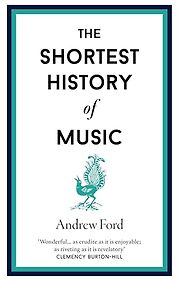
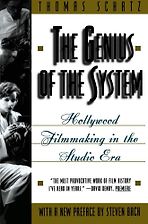
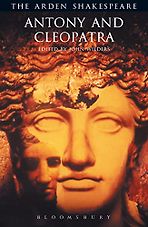
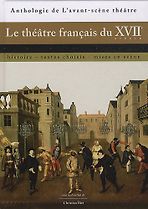
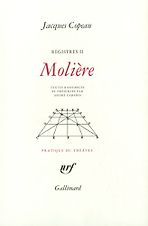
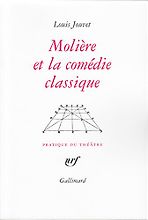
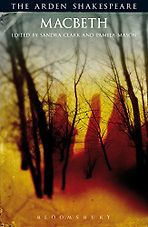
The book, according to the author